Juventus Stadium: Juventus
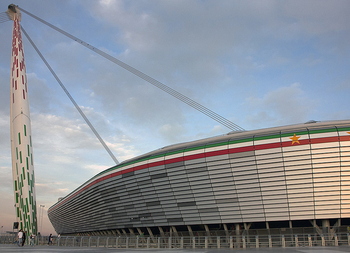
l.conti / Flickr.com
The Old Lady of Italian football has enjoyed a rich and storied history, full of success and controversy. Even their stadiums haven’t avoided similar things in the past, with their previous permanent home – the Stadio delle Alpi – drawing criticism for being so expensive, having poor views and being difficult to get to. Perhaps that is part of the reason that the club decided to invest about €120 million in the construction of a new stadium back in 2009. It opened on the 8th of September with a friendly match against Notts County, the club that Juventus borrowed the kits from way back when. Lovely bit of trivia there.
Juventus are one of only three Italian teams to own their own stadium at the time of writing. The money to invest in the ground came from a number of sources including Sportfive Italia (now defunct) who agreed to “exclusive naming rights” until 2023 for €75 million, with €35 million paid up front. There was also a €50 million loan from Istituto per il Credito Sportivo that was later increased to €60 million as well as a €20.25 million sale of land to Nordiconad. All of this allowed the club to ensure there would be a minimal amount of environmental impact in the building of the stadium thanks to the use of environmentally sustainable technologies. Allianz took up the naming rights in 2017 and will complete the term agreed by Sportfive, ending in 2023.
Stats
| Juventus Stadium Stats | |
|---|---|
| Year Opened | 2011 |
| Capacity | 41507 |
| Average Attendance | 39489 |
| Record Attendance | 41470 (Juventus v Roma (Dec 2016)) |
| Pitch Size | 105 x 68 (7140) |
| Owner | Juventus Football Club |
| Sponsor | Allianz |
| Clubs Hosted | Juventus FC |
| First Fixture | Juventus v Notts County (08/09/2011) |
| Juventus Stats | |
|---|---|
| Year Founded | 1897 |
| Nickname | La Vecchia Signora (The Old Lady), La Fidanzata d'Italia (The Girlfriend of Italy), La Madama (Piedmontese for: Madam), Il Bianconeri (The White and Blacks), Le Zebre (The Zebras), La Signora Omicidi (The Killer Lady),La Goeba (Gallo-Italic for: Hunchback |
| Club Mascot | J (a zebra) |
| Rivals | Torino, Internazionale, AC Milan, Roma, Fiorentina, Napoli |
| Previous Stadiums | Stadio Olimpico di Torino, Stadio delle Alpi, Stadio di Corso Marsiglia, Stadio Motovelodromo Umberto |
| Kit | Black & White (Home) / Black Patterned (Away) / Yellow & Blue (Third) |
| Training Ground | Juventus Centre |
| Shirt Sponsor | Jeep |
| Team Owner | Agnelli family |
| Record Goalscorer | Alessandro Del Piero (290) |
| Record Appearances | Alessandro Del Piero (705) |
Juventus Stadium Photos
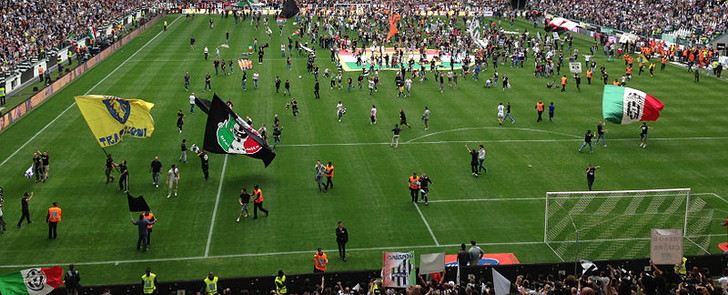
By Alessandro Conte (Own work) [CC BY-SA 3.0]
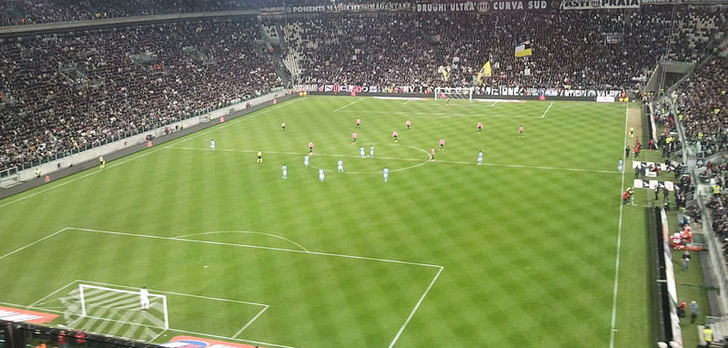
By Gianluca Scarfò (Own work) [Public domain]
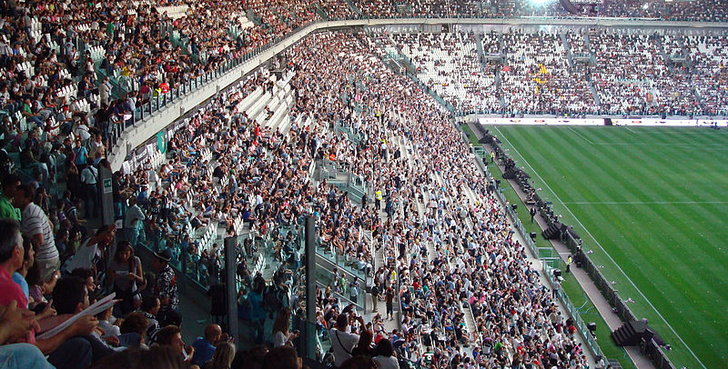
By Francesco Prota (Own work) [CC BY-SA 2.0 it]
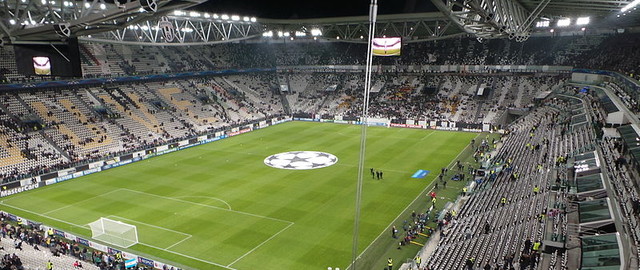
By forzaq8 from kuwait
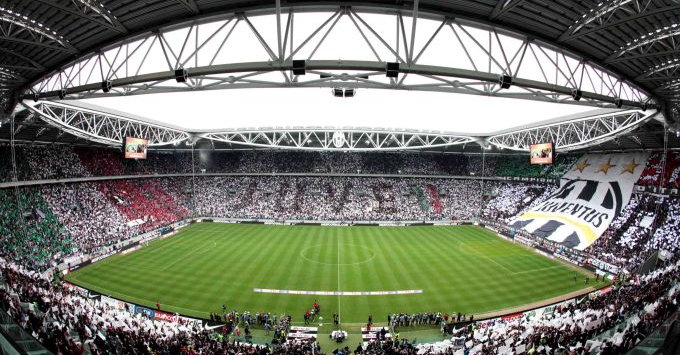
By DoniWolf (Own work) [CC BY-SA 4.0]

By Roberto Pezzali (Own work) [CC BY-SA 2.0 it]
Juventus Stadium Seating Plan and Where to Sit
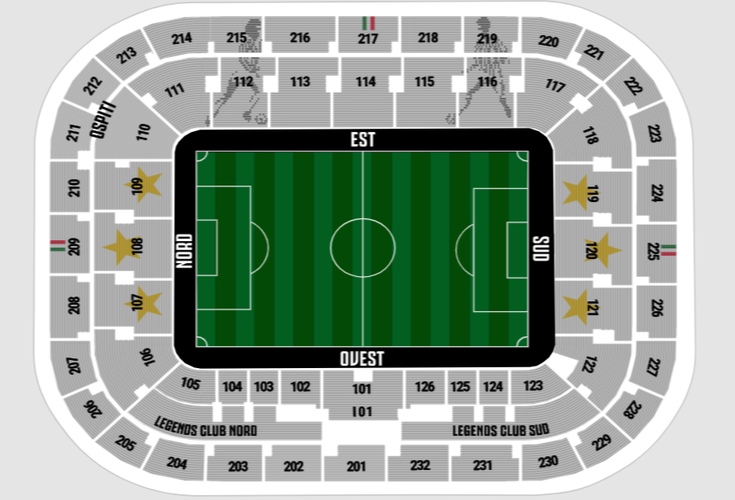
Juventus Stadium is essentially a bowl of continuous seating. That doesn’t mean that you can’t break it down further, however, with the ground falling into roughly four different sections. Here’s a little bit of info about each:
- Curva Nord – This is, as the name suggests, at the Northern end of the stadium. It tends to house the Juventus “Ultras”, the most passionate fans who are responsible for making the most noise on match days.
- Curva Sud – Opposite the Curva Nord at the Southern end of the ground, the Curva Sud also houses some of the more passionate Juventus fans. This is an intimidating part of the ground that you might want to give a miss if you’re going with younger fans.
- Tribuna Est – This two-tier section of the stadium allows more seats in the lower part than the upper, as is the case with the rest of the ground. This is also the largest part of the stadium.
- Tribuna Ovest – This is the ground’s main stand and contains the dugouts, the changing rooms and the players’ tunnel. There are two tiers that are separated by a row of executive boxes.
Juventus Ticket Prices
It is theoretically easy enough to understand the ticket prices for Juventus matches. You’ll pay different amounts depending on where in the ground you’d like to sit and how old you are. There is also a membership available that will give you priority access to tickets as well as a slight price discount. However, there about about 900 different seating areas, which complicates things a little.
Here are the cheapest and most expensive ticket prices for adults and concessions:
- Adults: €50 – €150
- Concessions: €25 – €90
- Junior: €25 – €90
How To Get Juventus Tickets
Tickets for each individual game go on sale ten days before the game itself. You can buy tickets online via the club’s official website or from numerous authorised locations throughout the city of Turin. As with most foreign clubs you can also normally pick up a ticket from a site like Viagogo but this is risky. Juventus often employ ID checks and the ticket must be in the name of the person who is trying to use it.
Where to Buy
Getting To Juventus Stadium
Turin is in Northern Italy and though it lacks the ‘sexiness’ of Rome or Venice it is still well worth a visit. Here are some of the more typical routes you’ll consider taking if you’re heading there from the UK:
Train – If you want to get to Turin itself by train then it’s fair to say it may take you a while. You’ll want to get the Eurostar from Kings Cross to Paris Gare du Nord. From there you’ll get an internal train to Gare de Lyon before getting a TGV train to Turin. You’ll arrive at Porta Susa Station, which is about ten minutes walk from the centre of the city.
Unfortunately Juventus Stadium is about seven kilometres away from the city centre. Because of this you’ll want to take the Metro from Porta Nuova to a stop called Bernini, though this service only runs on match days. If you’re heading to the ground on a non-match day then have a look at the bus routes.
Bus – Bus numbers 62, 72 and 75 will take you from the centre of Turin to the ground.
Car – The stadium is just off the Tangenziale, which is a ring road around the city of Turin. If you want to drive then you’d be well advised to use a sat-nav and put in the stadium’s address.
By Air – Turin Caselle Airport is about 20 miles from the city, whilst Turin-Cuneo Levaldigi is more like 65 miles away and is the airport often used by budget airlines.
Taxi – A taxi from the city centre to the ground will set you back about €20 and should take around twenty minutes to complete its journey. Make sure you book a return trip, though, as there’s no taxi rank at the ground itself.
Parking Near Juventus Stadium
There are a couple of car parks at the stadium that can house about 4000 cars. The club charges €10 per car parking space or €20 if you’d like a premium spot.
Useful Resources
Juventus Stadium Hotels
Turin is a delightful city to visit and has plenty of hotel options for you to consider. Here are some of our favourites:

Hotel Master - £40+
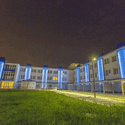
Diamante Mhotel - £60+
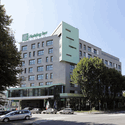
Holiday Inn Turin Corso Francia - £80+
Pubs and Bars Near Juventus Stadium
The best way to get to know any city is to immerse yourself in the local culture. Obviously there are plenty of museums in Turin, but why not go and have a glass of local red wine, too? Here are some of our favourite places for a pre-match tipple:
Shamrock inn
St. Martin Pub
Blah Blah
Facilities
As one of the newest stadiums in Italy it’s fair to say that the facilities at Juventus Stadium are pretty exceptional. After severe criticism of the views from the Stadio delle Alpi the club has done its best to ensure the sight lines are pretty good from everywhere, too.
Hospitality
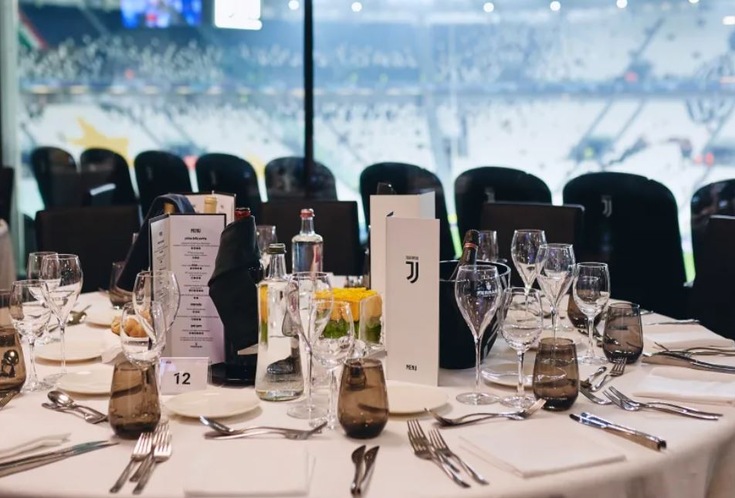
Juventus offer a number of hospitality packages on a season ticket basis, but the one we imagine you’ll be most interested in is the match day option at the Legends Club. This is a VIP area that has comfortable seats in a lounge that overlooks the pitch. You’ll enjoy food from an a la carte menu, half-time refreshments, and a unique vantage point of the action on the pitch from incredibly comfortable armchairs.
Private Hire
There are eight conference suites available at Juventus Stadium that can be hired out for any number of personal uses, with conference space for 30-300 people and up to 800 people for a big event. To find out more your best bet is to contact the stadium directly.
Stadium Tours & Museum
A trip to Juventus Stadium would only really be complete by doing the tour of the stadium and entering the museum. It is open for tours every day of the week apart from Tuesdays. You can even tour the ground on a match day, though it will cost you more.
To see the museum alone will cost adults €15 whilst under-16s and concessions will pay €12. If you want to incorporate the tour too then that will set you back €25 or €20 depending on your age, whilst the match day tour and museum ticket is €30 for adults and €27 for everyone else.
There is a virtual tour on the website too if you are interested but don’t fancy flying to Italy.
About Juventus
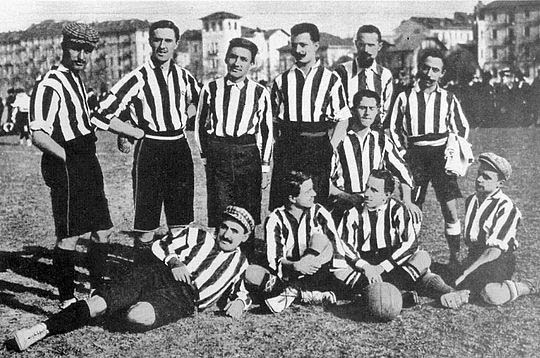
Formed in 1897 as Sport-Club Juventus, Juve is the third oldest football club in Italy. The club has been owned by the Agnelli family since 1923 and that is the oldest sporting partnership in Italy. Some believe that means that Juventus were, therefore, the first professional club in the country. During that time Juventus have, to date, won thirty-two league titles – an Italian record – a record eleven Coppa Italias, a record seven Supercoppa Italianas, three UEFA Cups and two European Cups.
The club’s time hasn’t always been rosy and joyful, however. In 2006 Juventus was one of six Italian clubs implicated in a scandal that would rock world football. It transpired that two Juventus general managers, Luciano Moggi and Antonio Giraudo, had spoken to numerous Italian football officials in order to ensure that Juve got ‘favourable’ referees for their games. It resulted in the club being stripped of two Serie A titles and relegated to Serie B for a season. A number of Juve’s best players, such as Zlatan Ibrahimovic left the club as a result of the scandal.
Juventus Stadium History
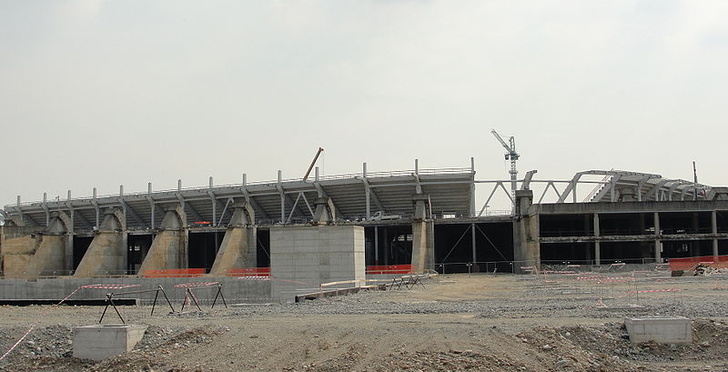
The Stadio delle Alpi was built in time to host games during the 1990 World Cup. The club’s decision to move their form their previous ground, Stadio Comunale, was a controversial one thanks to the lack of accessibility to the stadium, the poor sight lines because of the athletics track that had been put in and the huge cost of its construction. Despite it having a capacity of 67,000 it was normally only about a third full, so Juve decided they needed to find a new home.
Juventus moved out of the Stadio delle Alpi in 2006, playing their home games at the Stadio Olimpico whilst a new stadium was built on the sight of of the delle Alpi. The new ground produces its own electricity thanks to solar panels, produces warm water that heats the various parts of the ground and is generally very environmentally friendly. The construction even involved the re-use and recycling of as much of the Stadio delle Alpi as could be managed. The ground was used to host the 2014 Champions League final.
Future Developments
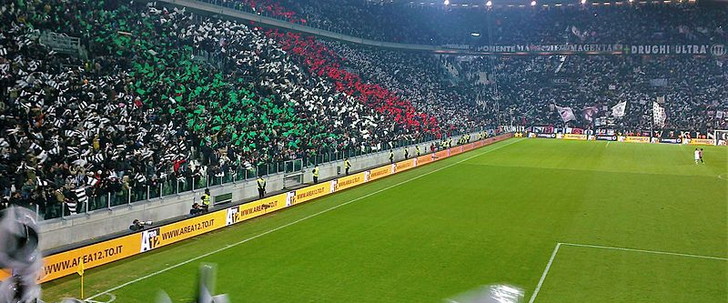
In 2010 Juventus acquired a 50-year leasehold of the area around the ground. This will be used to house the club’s headquarters, a Juventus Soccer School, hotels and more. In 2017 a power station and infrastructure to support the whole area was completed, making the stadium more environmentally friendly.
